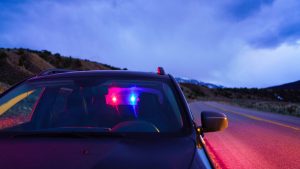There are typically three so-called field sobriety tests that Hawaii police officers use when trying to determine if a person is impaired by alcohol. They were thought up by social scientists pursuant to government grants decades ago. The science behind them has been examined for years. There are significant problems. Besides the fact that many people, completely sober, would fail the tests, the federal government set the bar for employing the tests very low. The question that was asked was “was a police officer correct in arresting the person?” The standard for an arrest is probable cause. That is, would a reasonable person, the officer, believe that the person committed the crime. It is a fairly low standard. Not surprisingly, officers who had observed some form of “bad driving”, had an admission of drinking, smelled alcohol and observed red, watery eyes, had a pretty good idea that the person was impaired anyway. Still, in more than a quarter of the cases they were wrong. But, 75% was good enough for the government. All of this is assuming the officer was trained properly and properly administered and graded the test. And even if they did, it is a completely subjective test and, even if your friend videotapes you, it is unlikely your friend will be able to see your eyes during the HGN test. What is especially problematic in Hawaii is that the courts have taken the opinion that if an officer observes you making some sort of mistakes then it essentially means you are impaired. It takes a lot of preparation, cross examination and determination to overcome this aspect of Hawaii law. In sum, they are not very accurate but the Hawaii courts rely on them heavily.
The Contributor is Kevin O’Grady esquire. Kevin O’Grady practices in Honolulu, Hawaii, has been in practice since 1997, is a former prosecutor, a member of the National College for DUI Defense, the NACDL, and HACDL and he is a Major in the U.S. Army reserve as a Judge Advocate. His practice is 90% DUI and traffic related. He focuses on DUI, criminal defense, and Courts-Martial. He can be reached at 1-800-DUI-CASE, 808-521-3367, WWW.CriminalAndMilitaryDefenseHawaii.Com, or Paralegal1@CriminalAndMilitaryDefenseHawaii.Com
